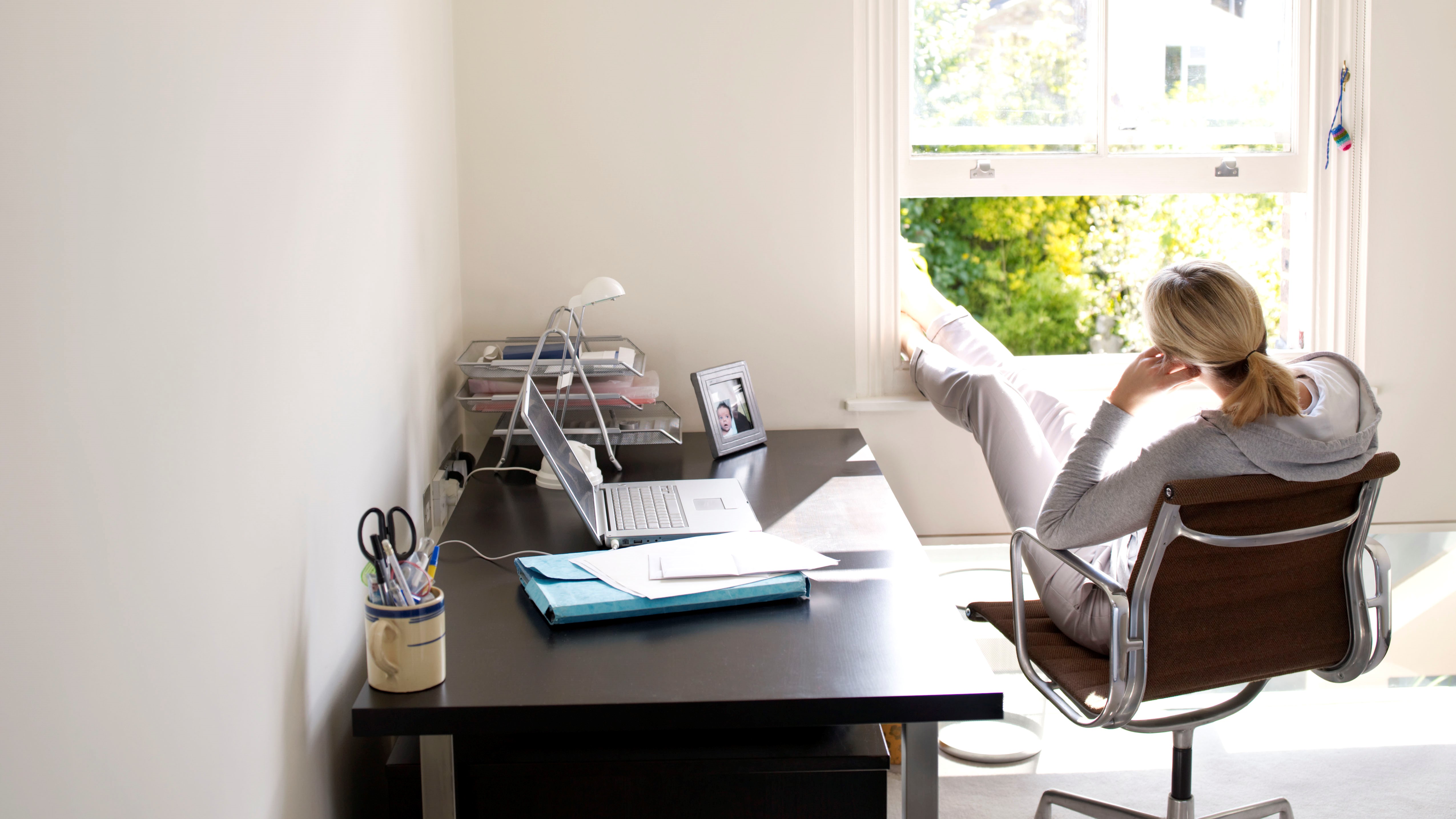The price of working from home? A 7% rise in housing costs, report reveals
It’s often thought that the rise in remote working has led to a cut in expenses for employees, but is the price of working from home more than you think?

Sign up to receive the latest news, reviews, buying guides and deals direct to your inbox
You are now subscribed
Your newsletter sign-up was successful
Americans who are working remotely could be losing out financially by carrying out their roles from home rather than at their usual place of work. That’s the perhaps surprising finding of a new report from the National Bureau of Economic Research (NBER) which reveals that employees who work from home spend on average 7% more on housing costs than those who stay in the office.
Hidden housing costs
The figures show that between 2013 and 2017, households with at least one adult working from home spent between 8.4% and 9.8% more on housing costs than non-remote households, largely the result of higher mortgage costs and property taxes. Yet a similar jump was true for renters, who spent between 6.5% and 7.4% more than their office-based peers.
The study suggests that this is due to the fact that remote workers typically have larger houses with a higher cost per room, with the need for extra space becoming apparent to anyone who’s been catapulted into remote working in the last 12 months.
And, given that the figures were compiled in a pre-COVID era, it isn’t difficult to assume that even more workers could now be feeling the effects of higher housing costs. Indeed, in 2017 a report from FlexJobs revealed that only around 3% of the US workforce regularly worked from home; by May last year, however, this proportion had exploded, with the NBER reporting that half of respondents were doing so, including 35% who’d switched to remote working as a direct result of the pandemic.
This isn’t a trend that’s likely to slow down any time soon, particularly given the relative ease with which many employers and employees alike have adjusted to this new way of working. Yet this also means that a growing number of Americans are likely to be impacted by rising housing costs, be it through moving to a bigger property - as over a quarter of remote workers have said they’d like to do - or perhaps by renovating their current home if they want to finance a dedicated home office space. But there are ways you can mitigate some of those costs, with the considerations differing depending on whether you’re relocating or renovating.

Should you move or remodel?
The first thing to do is be realistic about what you can afford, particularly if you’re considering relocating. Moving to the suburbs may be an option if you don’t need to worry about the commute, but costs are rising here too, and knowing how much mortgage you can afford will be your very first step in deciding whether it’s viable.
Firing up your personal finance software can be hugely beneficial when working out your level of affordability, and remember too that if you’re moving to a bigger, more expensive property, it follows that homeowners insurance can become similarly more expensive, so always keep these kinds of costs in mind when contemplating your next steps.
Sign up to receive the latest news, reviews, buying guides and deals direct to your inbox
If staying in your current home, but switching it around or adding to it, is more of a viable option for the time being, you'll likely want to know how to finance a home renovation. This will usually depend on whether it’ll be a simple update to a few rooms or a full remodeling project, complete with extension for the home office - the former might perhaps only need a small personal loan, while the latter could require something at the more extreme end of the scale, such as refinancing your mortgage or securing a home equity loan.
Remember the benefits
The NBER study didn’t delve into the additional expenses of home-working either, such as the cost of new equipment required to create the perfect home office and the endless supply of coffee that employers will no longer be paying for, yet there are undoubtedly some perks to this way of working, too.
Most will save on travel costs to the office, and are unlikely to miss the time spent stuck in traffic getting there. And while the home office tax deduction is not as wide ranging as it once was, if you’re self-employed, an independent contractor or gig worker working from home, it could still benefit you, when loading up your tax software.
What you can’t really put a price to, however, but what remains valuable about working remotely nonetheless, is the flexibility to quickly step away from your desk and just pop that nearly-ready meal into the oven, or welcome repair workers without needing to take the day off - these are little extras that can make a lot of difference as well.
Leanne has been writing professionally for well over a decade, with the majority of that time spent at a financial publishing company where she wrote countless articles across the personal finance space. Now freelancing, she still predominantly writes about finance, with bylines in both national and trade publications. In her spare time Leanne likes to read, catch up on Netflix and sleep, though her toddler rarely allows such things.

